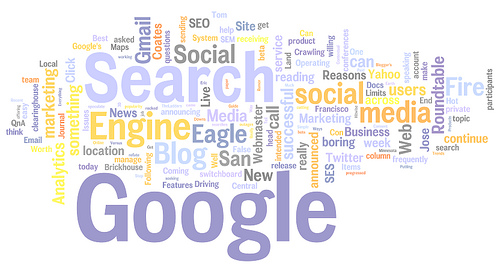
Search Engine Marketing: What It is & How it will help you.
What is Search Engine Marketing?
 According to wiki, ‘Search Engine Marketing (SEM) is another form of Internet marketing that involves the promotion of websites by increasing their visibility in search engine results pages (SERPs) which primarily through paid advertising.’ SEM may incorporate with search engine optimization (SEO) but we will tackle that in a bit.
According to wiki, ‘Search Engine Marketing (SEM) is another form of Internet marketing that involves the promotion of websites by increasing their visibility in search engine results pages (SERPs) which primarily through paid advertising.’ SEM may incorporate with search engine optimization (SEO) but we will tackle that in a bit.
SEM is one of the most effective ways to grow your business in an increasingly competitive marketplace. With millions of businesses out there, both online and physical, all are vying for the same eyeballs, it was never been more important to advertise online, and SEM is the most effective way to promote your products and grow your business.
To simplify, SEM a marketing concept and strategy that will help improve your site’s ranking in all known search engines, like Google or Bing, as well as the amount of traffic you receive from those search engines. This is particularly very important since a large percent of new visitors will find your website just by doing a search query through a search engine. It’s greatest strength is that it offers advertisers a lot of opportunities to put ads in front of motivated customers who are ready to buy at the precise moment they’re ready to make a purchase. No other medium in advertising can do this which is why search engine marketing is so effective and it is such an amazingly powerful tool to help grow your business.
Difference between SEM and SEO?
Search engine optimization is essentially a component of the larger category, SEM. SEO is the process of affecting the visibility of a website or a web page in web search engine’s unpaid results, it is also often referred to as “natural,” “organic,” or “earned” results. To put it simply, the earlier or high ranked your site is on the search results page, and more frequently a site appears in the search results list, then more visitors it will receive from the search engine’s users, and these visitors can be converted into customers.
Main difference between these two terms is that the SEO is simply a component of SEM. Other than SEO as a component, SEM includes components of paid search, such as pay per click (PPC) listings and advertisements and also social media marketing (SMM). Take note that you shouldn’t use the terms SEO and SEM interchangeably, because although they work hand in hand but they’re not the same term.
Methods and Metrics
According to wiki, there are five categories of methods and metrics used to optimize websites through search engine optimization.
- Keyword research and analysis involves in three ‘steps’ to ensure the site can be indexed in the search engines, finding the most relevant and popular keywords for the site and its products, and using those keywords on the website in a way that it will generate and convert traffic. As online searching is often the first step for potential consumers/customers, the search perception will impact and shapes the brand impression for each individual.
- Website saturation and popularity, or how much presence a site has on search engines, can be analyzed through the number of pages of the site that are indexed by search engines (saturation) and how many backlinks the site has (popularity). The following are some major tools in measuring various aspect of saturation and link popularity: Link Popularity, Top 10 Google Analysis, and Marketleap’s Link Popularity and Search Engine Saturation.
- Back end tools, it includes Web analytic tools and HTML validators, that will provide data on a website and its visitors and allow the success of a website to be measured. They range from simple traffic counters to tools that work with log files and to more sophisticated tools that are based on page tagging. Validators checks the invisible parts of websites, highlights the potential problems and many usability issues and ensuring websites meet W3C code standards.
- Whois tools reveal the owners of various websites and can provide valuable information relating to copyright and trademark issues.
- Google Mobile-Friendly Website Checker: This cool little tool will analyze a URL and report if the page has a mobile friendly design.
How it will help or benefit you and to your business?
When people search online for a product or service they already have in mind to buy or purchase it if it’s what they’re looking for. We use SEM to target your products and services so that when someone searches for a specific product your ads will show in the search engine result listing. SEM will allow you to literally place your business in front of the people looking for you and also bring prospects to your site and converting them into customers.
- Lead Generation: SEM will help you drive targeted traffic to your site 24/7. We all know that the Internet, like New York City, never sleeps. When your site has visibility on search engines, your are surely going to get targeted traffic in every hour of every day. With search engine marketing, you can definitely get more targeted traffic to your site.
- Cost Effective: When compared to other traditional advertising, search engine marketing is definitely more cost effective. SEM traffic is more targeted which makes it a lot easier for you to convert prospects to customers.
- Brand Building: Once your website has high visibility on search engines, you’re showing your prospects that your business is an authority in your respective brand or industry. When search engine users see your website often, they will remember your brand. Even if they don’t have plans to purchase products or services now but they will think of your brand first when they’ll need it in the near future.
- Stay Competitive: Try to do a Google Search with some keywords related to your business. You will see that most of your Competitors are already leveraging SEM, and are taking some business away. Stay competitive in your industry with SEM.
Many major search engines like Google and Bing accounts for more than 90% of all search engine traffic. Search engine marketing allows you to have more leverage to your business in Google’s playground to get the maximum exposure that your business need.

